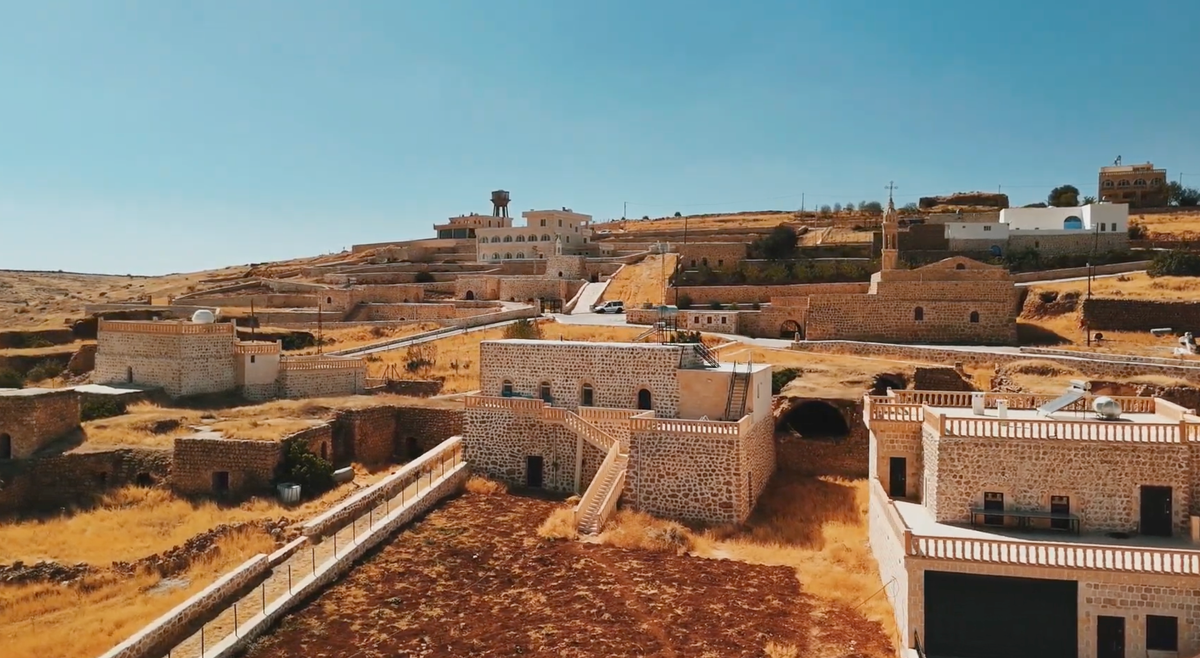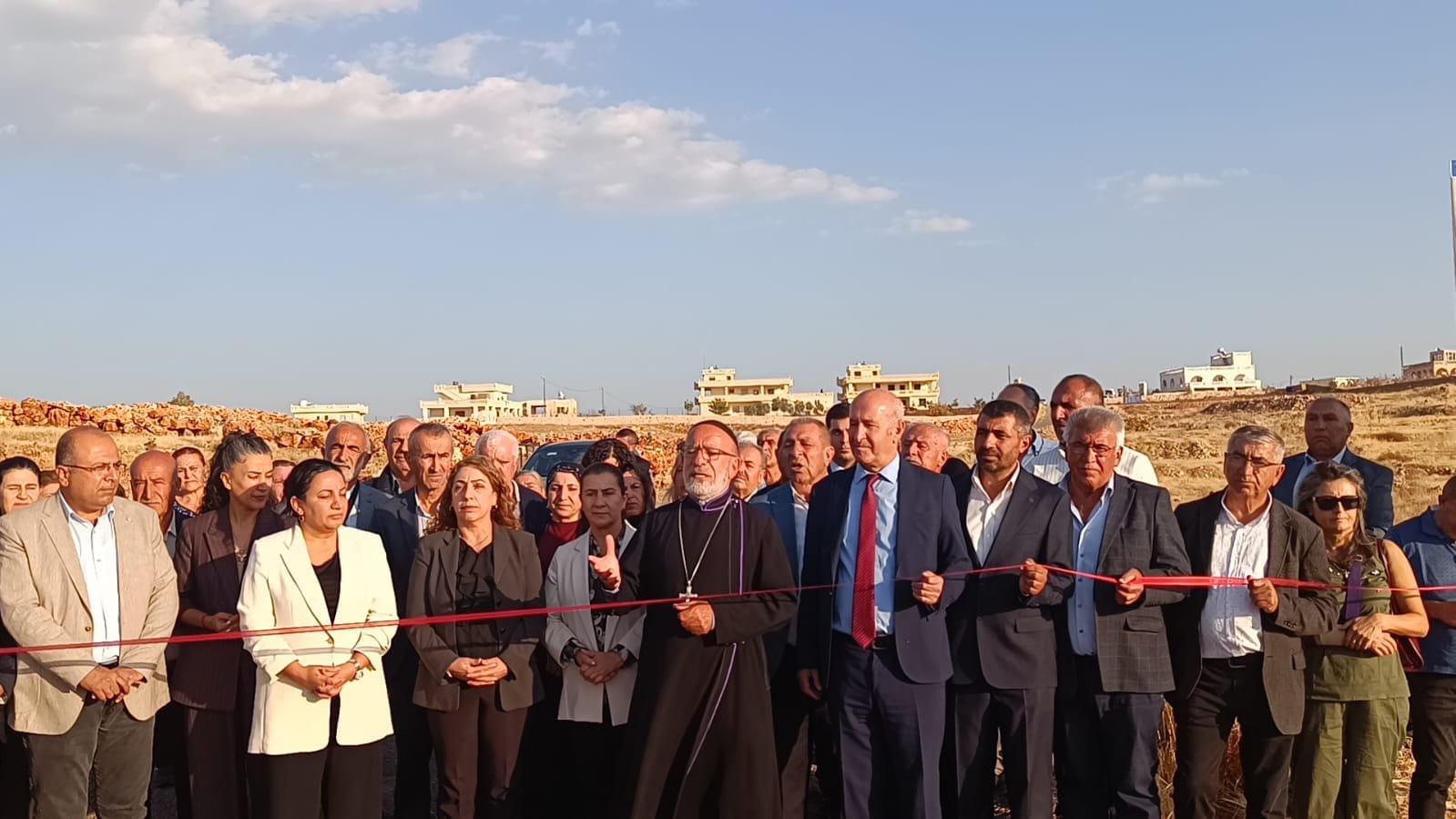The recent restoration of the historic Assyrian name of the village of Arbo in the Tur Abdin Region has been greeted with pride and relief across the Assyrian world. Yet the sense of long-awaited restitution quickly dimmed when the new road sign was unveiled.
The sign – reading “Welcome to Arbo” first in Turkish, followed by Assyrian, Kurdish, Arabic, and English – has prompted fresh questions about the intentions of the Nusaybin Municipality, governed by the DEM Party, a Kurdish entity widely seen as the political arm of the PKK guerrilla movement.
Conflicts over language on road signs have simmered across southeastern Turkey for years. In 2014, several Kurdish-language signs installed by municipalities led by the same political movement were removed by state authorities, highlighting the sensitivity of the issue.

A subtle attempt at Kurdification?
While many observers might interpret a multilingual road sign as a gesture of inclusivity, many Assyrians, shaped by centuries of displacement, coercion, and demographic pressure, see something else: a quiet attempt at creeping Kurdification.
On discussion forums and in community media, Assyrians point out that Arbo, and the wider area known as Turo d’Izlo, consist entirely of Assyrian villages. No Kurdish communities live in Arbo or its surrounding. This raises an obvious question: Why include languages that are not spoken in the village or its environs?
For decades, Kurdish nationalist movements, whether in their armed or political forms, have claimed the entire southeast of Turkey as Kurdish territory. Critics say that inserting Kurdish into signage for a wholly Assyrian village reinforces that narrative symbolically.
Municipal officials justify the use of Kurdish and Arabic by noting that these languages are spoken elsewhere in the district. However, residents told The Post that in majority-Kurdish villages, welcome signs do not include Assyrian, raising the question of why Kurdish should be included in an Assyrian village where no Kurds live.
The addition of Arabic, a language rarely spoken in the area, has deepened suspicion. Some residents argue that including Arabic helps veil the political messaging: had Kurdish been the only added language, the intent might have appeared too transparent. With Arabic present, the sign can be framed as a gesture toward “diversity” rather than a political assertion.

Strategic approvals?
Some Assyrians see an even broader strategy behind the municipality’s willingness to reverse state-imposed Turkish place names. While the change appears positive on its face, critics argue that such approvals can later be used to justify renaming other villages, this time into Kurdish, as part of a step-by-step process of cultural and symbolic Kurdish expansion. For outsiders, such suspicions may seem excessive. But for those familiar with the region’s history, the wariness is far from unfounded.
Assyrians in Tur Abdin carry deep historical scars: Kurdish participation in the 1915 Seyfo genocide, recurring waves of violence before and after it, and the deliberate targeting of Assyrian villages during the PKK–Turkish state conflict of the late 20th century. Throughout that period, the Kurdish PKK movement intentionally brought its guerrilla fight against the Turkish state to Tur Abdin and into Assyrian villages with the aim to force the population to leave the area so that Kurds could further penetrate the region. Meanwhile, the PKK waged a simultaneous propaganda war aimed at framing the Turkish state as solely responsible for the exile of Assyrians from the area – effectively hiding its own calculated and intentional tactic of clearing the ground for further Kurdification. Seen against this backdrop, a multilingual road sign, commissioned by what is effectively the political arm of the PKK, becomes more than simple decoration.
Open Kurdification
If Arbo represents a subtle form of symbolic Kurdification, other Assyrian villages are experiencing something more direct. In several communities, indigenous Assyrians seeking to restore their ancestral village names have met resistance, not from the Turkish state, but from Kurdish settlers who arrived in recent decades as a result of the PKK:s devious strategy to drive out the Assyrians.
In Anhel, the Assyrian request to restore the historic name has stalled because the Kurdish settlers insist the village be renamed in a Kurdishized form – Nehile – rather than the original Anhel. As a result, the village remains stuck with its Turkish name, Yemişli.
A similar dispute has unfolded in Mzizah, where Kurdish settlers demand spelling the name as Mzizakh, despite the historical Assyrian form Mzizah. Once again, the issue remains deadlocked between the village’s indigenous Assyrian population and the Kurdish settlers.
For many Assyrians, this feels like an old pattern with a new face: the retreat of Turkification making way not for indigenous restoration, but for another layer of imposed identity. As one resident put it, “We cast off one yoke only to feel another settling around our neck.”












